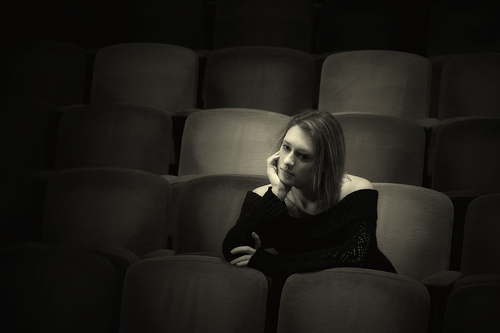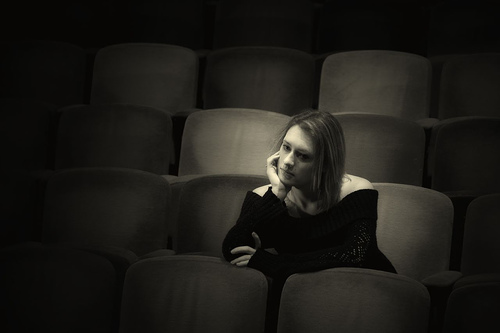New ratings system challenges sexism in films
Laura Mooney
Over The Edge

Strong female leads are not common enough in mainstream film. (Photo courtesy BenedictFrancis/Flickr Creative Commons ((CC BY-NC-SA 2.0)
PRINCE GEORGE (CUP) — Art-house cinemas across Sweden are breaking moulds and challenging the typical film rating standards by implementing a system that determines whether a film is considered sexist or not; unfortunately, not many of our beloved Hollywood blockbusters are passing the test.
The new standards use a system created in 1985 called the Bechdel test, which is a basis for testing whether a work film leans towards gender bias. It was taken from a character’s comment in a comic by Alison Bechdel. The new system takes the original idea put forth by the Bechdel test and expands on it even further to show just how much gender bias is present in not only the film we view today, but also the films created over the whole span of the film industry’s existence. The rating’s system asks three basic questions about a film. Does it have at least two named women? Do they talk to each other at some point in the film? And do the talk about something other than a man?
The cities of Stockholm, Gothenburg, Helsingborg and Malmo, with praise from the Swedish Film Institute, have already introduced this new ratings’ system to members of the public and have implemented it in the cities’ art-house cinemas, with approval from Bechdel. These cinemas have agreed to only show films that meet the standards of the Bechdel test, and refuse those that go against them. So far some of the films included have been The Hunger Games, Savages and The Iron Lady, all of which feature strong female leads in powerful positions.
While this new system may not catch on around the world in larger theatres, it does open the movie-going public’s eyes to gender bias and exactly how much of it is really occurring in the hit films we watch. Many favourites such as the Star Wars and Lord of the Rings series did not pass these new ratings, as well as many classics such as Pulp Fiction and Good Will Hunting. Even the Harry Potter series only had one film that would pass the Bechdel test. This points out that the majority of our favourite blockbusters are male-dominated, leading to the question: what about the women?
While the test does point out the male dominance of the film industry, one major flaw in the system still remains, and that is the fact that the system measures a film’s gender bias strictly by these standards, and in no way takes into account if the females in the films are stereotypical or are presented in a negative way. So, although the Bechdel test is supposed to measure gender bias, it cannot tell if a film is feminist, or if it highlights women in a positive light. For example, even the German film Run Lola Run, which is known for its strong female lead and feminist undertones, does not pass the Bechdel test standards. At the same time, some animated Disney films may pass the test, while reenforcing gender stereotypes.
While the Bechdel test is still only popular in theatres in Sweden, it still raises questions about what we watch when we go to the movies. While 50 per cent of the movie-going public is female, only 10 per cent of films feature a strong female lead. Is it because we prefer to see a male in the lead role? Or perhaps it is because of gender roles which have been around for ages? Either way, the experiment in Sweden is opening the public’s eyes to hidden biases in films not thought to possess them before.
Only the future will tell, however, if these new findings will change the way people choose which movies they see, but even if the test-approved films only remain in art-house theatres, the fact that these new observations have now been brought to the general public is a step forward in stopping gender biases in popular films today.


